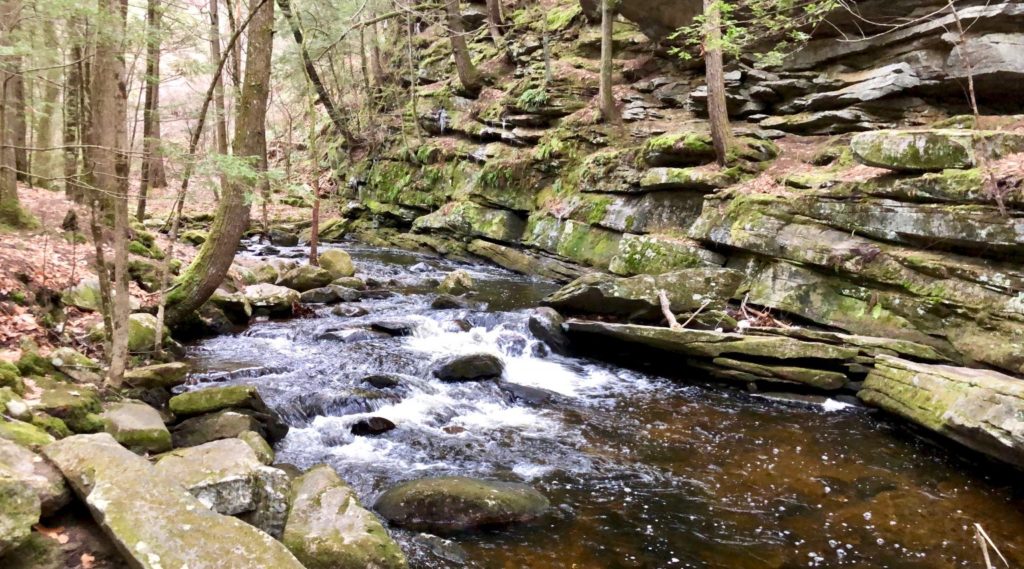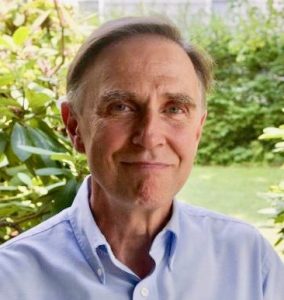Opinion: White Supremacy Fuels Both Police Violence And Climate Destruction

New England brook on New Year’s Day,2023. Photo: Russ Vernon-Jones.
Love Justice And Climate Change

A friend of mine recently talked to me about white supremacy. He said the white supremacy groups like the ones that marched with torches in Charlottesville in 2017 at the “Unite the Right” rally really scare him. “But when people start talking about white supremacy being everywhere, I don’t get it. We’re not all like the KKK.”
His confusion is understandable. The term “white supremacy” is often used today in two rather different ways. On the one hand it refers to the beliefs of various right-wing hate groups that are quite explicit about wanting the U.S. to be a country for white people and seeing Black and brown people (and sometime all Jews, LGBQT+, Asians, and Indigenous people) as the enemy.
A Prevalent Way Of Thinking
On the other hand, “white supremacy” is also used to describe the, often implicit, ideology that has been prevalent throughout the United States, from the beginning, that has led to laws, policies, and institutions that have favored white people. This more common, often unexpressed, way of thinking has affected all of us. It has led white people, in general, to feel more comfortable with other whites, and to see most white people as more responsible, trustworthy, and intelligent, and less violent than Black and brown people. Even those of us who are committed to racial justice can find these ideas arising in our minds against our will. Studies show that even a significant percentage of Black and brown people have internalized some of these messages, as well.
Primary Features
Some of the primary features of white supremacy ideology are superiority, domination, and entitlement, especially entitlement for white people to pursue what they want and to seek their personal wealth, power, and comfort without regard to the effects of their actions on other people (especially Black and brown people) or on the natural environment. We see these features of white supremacy in everything from slavery to today’s right-wing efforts to limit voting rights, from failures to challenge racial discrimination to how racially segregated many neighborhoods are today.
Fossil Fuel Industry
We see the same greed and disregard for the effects of their actions in the U.S. fossil fuel industry continually seeking to increase extraction of coal, oil, and gas long after knowing that this was heading us toward climate disaster. The effect has been to enrich a small number of mostly white people and to create devastation for people in frontline nations in Africa and around the world, and for the environment itself.
Policing
We also see white supremacy in the way policing has been carried out in the U.S. Historically police departments have been assigned the job of maintaining order and protecting the status quo. In a racialized society like ours, where much of the power is held by white people, this has ended up meaning protecting white property rights, often at the expense of the human rights of Black and brown people.
White supremacy ideology has imbued much of the white population with a sense that many Black and brown people tend to be violent, irresponsible, and dangerous. This has resulted in a great many police departments having an institutional culture that sees Black and brown people as a threat to the peace-keeping mission of the police and as a threat to police officers themselves.
A number of police officers have shared with me that they think most police see themselves as in danger whenever they are on duty. Many see their own personal safety as being provided by their batons and guns. This, too often, leads to police violence against Black and brown residents.
Tyre Nichols
Tyre Nichols, a Black man, was beaten to death by five Memphis police officers in January. The five officers were all Black. This has led to some confusion about the role of white supremacy in his murder. White supremacy is embedded in many of our institutions and does not depend on racial hatred by individuals. If protecting society from violent Black men is seen as a major role of the police and the culture of a police department sees such men as a danger to the officers themselves, then even Black officers may become part of that mission and culture when they join a police department.
Studies show that Black and Latinx police officers tend to use less force against civilians than do white officers. However, they are not immune to the power of the culture of their departments and the presence of white supremacy ideology throughout the society.
Our Work – To Undermine White Supremacy
Because white supremacy is all around us in this society, we all inevitably internalize some of it even if we don’t want to. Part of our work is to undermine the way these ideas sit in our heads. We must join together to undermine the view that white lives and property are any more important than the lives of people of the global majority whether they live in the black neighborhoods of Memphis, on a Pacific island, in Africa, or anywhere else.
Ending police violence and continued climate destruction requires boldly claiming that every life matters as much as any other, regardless of the color of people’s skins. Together we will need to call all people to join in reaching for each other across divisions of race, class, and nationality, and anything else that might divide us from working together for solutions that work for everyone.
Russ Vernon-Jones was principal of Fort River School 1990-2008 and is currently a member of the Steering Committee of Climate Action Now-Western Massachusetts. He blogs regularly on climate justice at www.russvernonjones.org.
